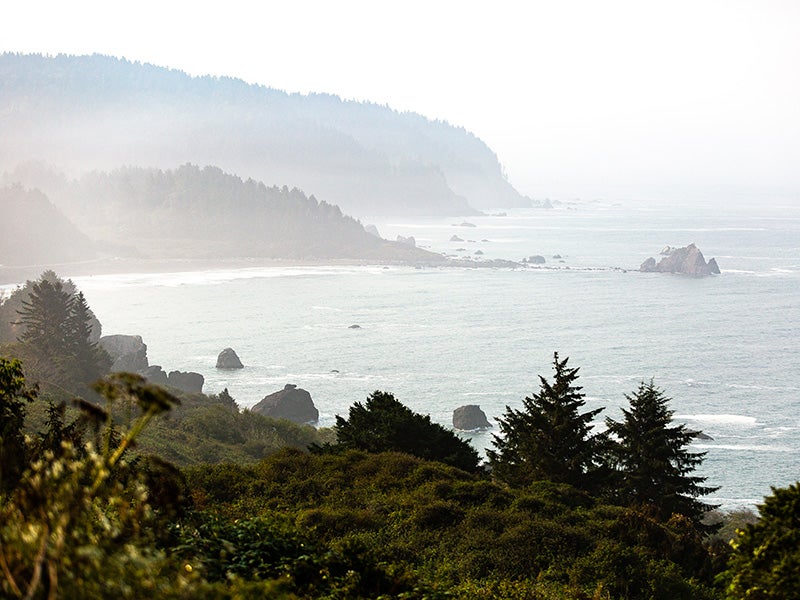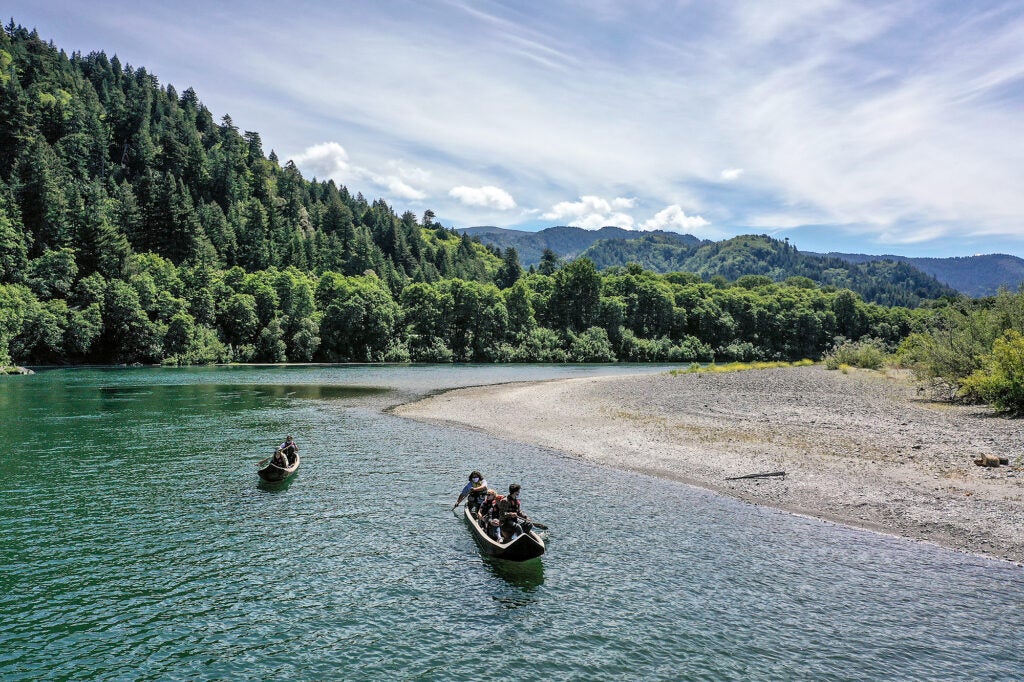Klamath River: Salmon Protection
As coho salmon declined, so too do the more commercially valuable and numerous chinook salmon. As the fish declined, so did the livelihoods of thousands of fishermen and their families and the coastal towns they hail from along a 180-mile stretch of coastline in northern California and southern Oregon, all of which relied on Klamath salmon as an economic mainstay.
Case Overview
Historically, the Klamath Basin in Oregon and California was a vast wetland serving as a vital feeding and resting place for millions of migratory birds and vital habitat for large numbers of salmon. In recent years, however, as a result of the Klamath Irrigation Project, water was diverted away from the Klamath River to irrigate fields devoted to water-intensive crops that could be grown nearly anywhere. The wetlands that were drained and the streams that were dewatered could not be replaced. The birds and fish that depended on the marshes and spawning beds began to disappear.
In 2001, in the face of a debilitating drought, a lawsuit filed by Earthjustice on behalf of commercial fishermen and environmentalists prodded the Bureau of Reclamation to limit water deliveries to farmers in the basin so that downstream coho salmon had a fighting chance. In the spring of 2002, the Bureau of Reclamation, the government branch charged with giving water to farmers, declared that there was sufficient water for all needs and proceeded to keep most of the water in upstream reservoirs for summer irrigation. This deprived young salmon of the water they needed to make their escape to sea, and jeopardized the coho fry that needed hiding and feeding areas in the streamside vegetation.
In 2002, a federal judge refused to order the bureau to provide water necessary for the immediate survival of young salmon. As the summer of 2002 wore on, the flows released by the federal Bureau of Reclamation declined as more water was diverted to farmers upstream. The water diversions led to a massive die-off of an estimated 33,000 salmon, steelhead and other fish in the Klamath.
Later that year, a National Marine Fisheries Service scientist argued that his work to assure adequate water levels had been overridden for political purposes. He said that the water level guidelines eventually approved by the federal government were forced on fisheries scientists by the Bureau of Reclamation.
To the cheers of the families and communities that rely on Klamath salmon, a federal court rejected the Bush administration’s water management plan as illegal under the Endangered Species Act for failure to protect the endangered salmon. The ruling in July of 2003, renewed the hopes of fishermen and communities that rely on the salmon and began the process of creating a new plan that allows for more balanced water allocation, that can benefit all the diverse water users of the Klamath Basin.
In November of 2003, commercial fishermen, Native Americans, and conservationists welcomed the release of a long-awaited report by the U.S. Fish and Wildlife Service on the causes of the 2002 Klamath River fish kill. The report concluded that low river flows were at the heart of the tragic fish kill, in which over 33, 000 adult salmon perished before they could spawn.
The Ninth Circuit Court of Appeals on March 28, 2007, upheld a lower court ruling requiring the federal government to maintain minimum flows in the Klamath adequate to keep salmon alive in dry years, which is welcome step in rebuilding the coastal fishing economy.

Case Updates
Case page created on September 17, 2001.
